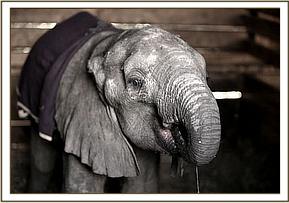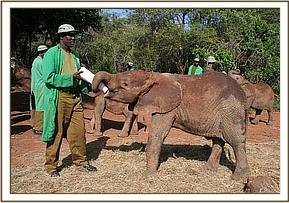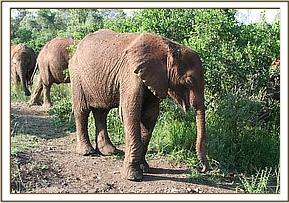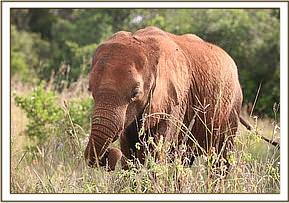Friday 12th June was a day that brought yet another needy orphaned elephant baby into our Nairobi Nursery, this time a female calf aged approximately 1 ½ years, and therefore still milk dependent, who was spotted alone by the Amboseli Baboon Research Team at around 1
Friday 12th June was a day that brought yet another needy orphaned elephant baby into our Nairobi Nursery, this time a female calf aged approximately 1 ½ years, and therefore still milk dependent, who was spotted alone by the Amboseli Baboon Research Team at around 1.30 p.m. who, in turn informed the Amboseli Elephant Researchers. Soila and Norah from the Amboseli Elephant Research Project located the calf outside the Park at a place called Narubaala, obviously having come from the Tanzanian side of the border. She had a fresh spear wound between the chin and shoulder and it is highly probable that her elephant mother had been killed in Tanzania where elephant poaching is now an extremely serious fact of life, massive hauls of illegal ivory having been recently intercepted en route to China and the Far East. Assisted by KWS Rangers, and using ropes, the Amboseli Researchers managed to capture the calf and drive her in the back of the KWS Landcruiser Pickup to the airfield, to await the arrival of the rescue plane, which was already airborne and landed 20 minutes later.
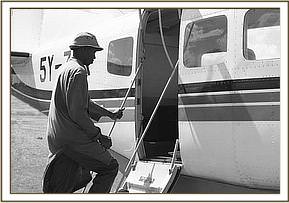
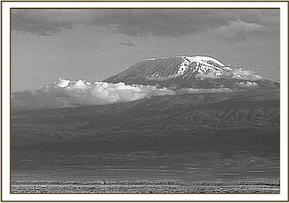
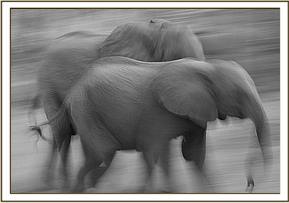
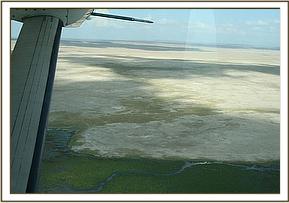

After being stuck in traffic from Wilson Airport to the Nursery, the orphan arrived at the Nursery after dark at about 7 p.m. where her wounds were cleaned and dressed before her legs were un-tied so that she could get to her feet. Although lean, with prominent cheek bones, she was in reasonable condition but understandably aggressive, although the presence of Tassia in the next door Stockade imparted a calming affect. The next morning she took her first bottle of milk and when sufficiently docile and settled joined the Nursery herd, who all came to greet her through the separating bars at first light, and later embraced them into their unit.
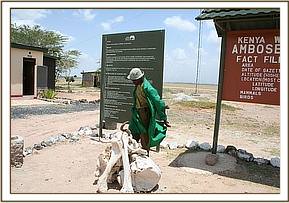
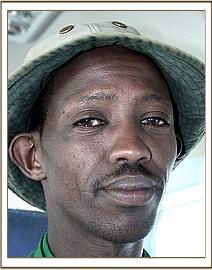
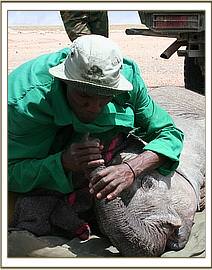

The Amboseli Researchers have chosen the name “Naimina” for the new baby, the word for “lost” in the Maa language. Her arrival brings the number in the Nairobi Nursery to a record 20 infant elephants which, as usual, necessitated a re-shuffle of the sleeping arrangements, Dida, Kenia, Kimana and Baarwa being transferred to the stockade vacated by Lesanju, Lempaute and Sinya to make room in the Taming Stockade for the new arrival. 2009 is turning out to be a true “annus horribilis” for elephants generally, who, here in East Africa, face serious ongoing drought conditions, loss of habitat due to an expanding human population, human wildlife conflict and the threat of disease as a result of large numbers of domestic livestock in their Home Ranges, not to mention the serious upsurge in poaching across Africa due to the insatiable appetite of China and the Far East for ivory.
